![Persuasion 勸導 [平裝] [NA--NA]](https://pic.tinynews.org/19017051/bea36be1-3cd2-4938-9ffe-7b3aa6a98bb8.jpg)

具體描述
編輯推薦
適讀人群 :NA--NAAusten is the hot property of the entertainment world with new feature film versions of Persuasion and Sense and Sensibility on the silver screen and Pride and Prejudice hitting the TV airwaves on PBS. Such high visibility will inevitably draw renewed interest in the original source materials. These new Modern Library editions offer quality hardcovers at affordable prices.
Founded in 1906 by J.M. Dent, the Everyman Library has always tried to make the best books ever written available to the greatest number of people at the lowest possible price. Unique editorial features that help Everyman Paperback Classics stand out from the crowd include: a leading scholar or literary critic's introduction to the text, a biography of the author, a chronology of her or his life and times, a historical selection of criticism, and a concise plot summary. All books published since 1993 have also been completely restyled: all type has been reset, to offer a clarity and ease of reading unique among editions of the classics; a vibrant, full-color cover design now complements these great texts with beautiful contemporary works of art. But the best feature must be Everyman's uniquely low price. Each Everyman title offers these extensive materials at a price that competes with the most inexpensive editions on the market-but Everyman Paperbacks have durable binding, quality paper, and the highest editorial and scholarly standards.
內容簡介
Jane Austen's last completed novel, Persuasion is a delightful social satire of England's landed gentry and a moving tale of lovers separated by class distinctions. After years apart, unmarried Anne Elliot, the heroine Jane Austen called "almost too good for me," encounters the dashing naval officer others persuaded her to reject, as he now courts the rash and younger Louisa Musgrove. Superbly drawn, these characters and those of Anne's prideful father, Sir Walter, the scheming Mrs. Clay, and the duplicitous William Elliot, heir to Kellynch Hall, become luminously alive—so much so that the poet Tennyson, visiting historic Lyme Regis, where a pivotal scene occurs, exclaimed: "Don't talk to me of the Duke of Monmouth. Show me the exact spot where Louisa Musgrove fell!"Tender, almost grave, Persuasion offers a glimpse into Jane Austen's own heart while it magnificently displays the full maturity of her literary power.
作者簡介
Jane Austen was born on December 16, 1775 at Steventon near Basingstoke, the seventh child of the rector of the parish. She lived with her family at Steventon until they moved to Bath when her father retired in 1801. After his death in 1805, she moved around with her mother; in 1809, they settled in Chawton, near Alton, Hampshire. Here she remained, except for a few visits to London, until in May 1817 she moved to Winchester to be near her doctor. There she died on July 18, 1817.As a girl Jane Austen wrote stories, including burlesques of popular romances. Her works were only published after much revision, four novels being published in her lifetime. These are Sense and Sensibility (1811), Pride and Prejudice (1813), Mansfield Park (1814) and Emma (1816). Two other novels, Northanger Abbey and Persuasion, were published posthumously in 1818 with a biographical notice by her brother, Henry Austen, the first formal announcement of her authorship. Persuasion was written in a race against failing health in 1815-16. She also left two earlier compositions, a short epistolary novel, Lady Susan, and an unfinished novel, The Watsons. At the time of her death, she was working on a new novel, Sanditon, a fragmentary draft of which survives.
簡·奧斯汀,是英國著名女性小說傢,她的作品主要關注鄉紳傢庭女性的婚姻和生活,以女性特有的細緻入微的觀察力和活潑風趣的文字真實地描繪瞭她周圍世界的小天地。
精彩書摘
Chapter OneSIR WALTER Elliot, of Kellynch Hall, in Somersetshire, was a man who, for his own amusement, never took up any book but the Baronetage; there he found occupation for an idle hour, and consolation in a distressed one; there his faculties were roused into admiration and respect, by contemplating the limited remnant of the earliest patents; there any unwelcome sensations, arising from domestic affairs, changed naturally into pity and contempt, as he turned over the almost endless creations of the last century-and there, if every other leaf were powerless, he could read his own history with an interest which never failed-this was the page at which the favourite volume always opened:
Walter Elliot, born March 1, 1760, married, July 15, 1784, Elizabeth, daughter of James Stevenson, Esq. of South Park, in the county of Gloucester; by which lady (who died 1800) he has issue Elizabeth, born June 1, 1785; Anne, born August 9, 1787; a still-born son, Nov. 5, 1789; Mary, born Nov. 20, 1791.
Precisely such had the paragraph originally stood from the printer's hands; but Sir Walter had improved it by adding, for the information of himself and his family, these words, after the date of Mary's birth-"married, Dec. 16, 1810, Charles, son and heir of Charles Musgrove, Esq. of Uppercross, in the county of Somerset,"-and by inserting most accurately the day of the month on which he had lost his wife.
Then followed the history and rise of the ancient and respectable family, in the usual terms: how it had been first settled in Cheshire; how mentioned in Dugdale-serving the office of High Sheriff, representing a borough in three successive parliaments, exertions of loyalty, and dignity of baronet, in the first year of Charles II, with all the Marys and Elizabeths they had married; forming altogether two handsome duodecimo pages, and concluding with the arms and motto: "Principal seat, Kellynch Hall, in the county of Somerset," and Sir Walter's hand-writing again in this finale:
"Heir presumptive, William Walter Elliot, Esq., great grandson of the second Sir Walter."
Vanity was the beginning and the end of Sir Walter Elliot's character: vanity of person and of situation. He had been remarkably handsome in his youth; and, at fifty-four, was still a very fine man. Few women could think more of their personal appearance than he did; nor could the valet of any new made lord be more delighted with the place he held in society. He considered the blessing of beauty as inferior only to the blessing of a baronetcy; and the Sir Walter Elliot, who united these gifts, was the constant object of his warmest respect and devotion.
His good looks and his rank had one fair claim on his attachment; since to them he must have owed a wife of very superior character to any thing deserved by his own. Lady Elliot had been an excellent woman, sensible and amiable; whose judgment and conduct, if they might be pardoned the youthful infatuation which made her Lady Elliot, had never required indulgence afterwards.-She had humoured, or softened, or concealed his failings, and promoted his real respectability for seventeen years; and though not the very happiest being in the world herself, had found enough in her duties, her friends, and her children, to attach her to life, and make it no matter of indifference to her when she was called on to quit them.-Three girls, the two eldest sixteen and fourteen, was an awful legacy for a mother to bequeath; an awful charge rather, to confide to the authority and guidance of a conceited, silly father. She had, however, one very intimate friend, a sensible, deserving woman, who had been brought, by strong attachment to herself, to settle close by her, in the village of Kellynch; and on her kindness and advice, Lady Elliot mainly relied for the best help and maintenance of the good principles and instruction which she had been anxiously giving her daughters.
This friend, and Sir Walter, did not marry, whatever might have been anticipated on that head by their acquaintance.-Thirteen years had passed away since Lady Elliot's death, and they were still near neighbours and intimate friends; and one remained a widower, the other a widow.
That Lady Russell, of steady age and character, and extremely well provided for, should have no thought of a second marriage, needs no apology to the public, which is rather apt to be unreasonably discontented when a woman does marry again, than when she does not; but Sir Walter's continuing in singleness requires explanation.-Be it known then, that Sir Walter, like a good father, (having met with one or two private disappointments in very unreasonable applications) prided himself on remaining single for his dear daughter's sake. For one daughter, his eldest, he would really have given up any thing, which he had not been very much tempted to do. Elizabeth had succeeded, at sixteen, to all that was possible, of her mother's rights and consequence; and being very handsome, and very like himself, her influence had always been great, and they had gone on together most happily. His two other children were of very inferior value. Mary had acquired a little artificial importance, by becoming Mrs. Charles Musgrove; but Anne, with an elegance of mind and sweetness of character, which must have placed her high with any people of real understanding, was nobody with either father or sister: her word had no weight; her convenience was always to give way;-she was only Anne.
To Lady Russell, indeed, she was a most dear and highly valued god-daughter, favourite and friend. Lady Russell loved them all; but it was only in Anne that she could fancy the mother to revive again.
A few years before, Anne Elliot had been a very pretty girl, but her bloom had vanished early; and as even in its height, her father had found little to admire in her, (so totally different were her delicate features and mild dark eyes from his own); there could be nothing in them now that she was faded and thin, to excite his esteem. He had never indulged much hope, he had now none, of ever reading her name in any other page of his favourite work. All equality of alliance must rest with Elizabeth; for Mary had merely connected herself with an old country family of respectability and large fortune, and had therefore given all the honour, and received none: Elizabeth would, one day or other, marry suitably.
It sometimes happens, that a woman is handsomer at twenty-nine than she was ten years before; and, generally speaking, if there has been neither ill health nor anxiety, it is a time of life at which scarcely any charm is lost. It was so with Elizabeth; still the same handsome Miss Elliot that she had begun to be thirteen years ago; and Sir Walter might be excused, therefore, in forgetting her age, or, at least, be deemed only half a fool, for thinking himself and Elizabeth as blooming as ever, amidst the wreck of the good looks of every body else; for he could plainly see how old all the rest of his family and acquaintance were growing. Anne haggard, Mary coarse, every face in the neighbourhood worsting; and the rapid increase of the crow's foot about Lady Russell's temples had long been a distress to him.
Elizabeth did not quite equal her father in personal contentment. Thirteen years had seen her mistress of Kellynch Hall, presiding and directing with a self-possession and decision which could never have given the idea of her being younger than she was. For thirteen years had she been doing the honours, and laying down the domestic law at home, and leading the way to the chaise and four, and walking immediately after Lady Russell out of all the drawing-rooms and dining-rooms in the country. Thirteen winters' revolving frosts had seen her opening every ball of credit which a scanty neighbourhood afforded; and thirteen springs shewn their blossoms, as she travelled up to London with her father, for a few weeks' annual enjoyment of the great world. She had the remembrance of all this; she had the consciousness of being nine-and-twenty, to give her some regrets and some apprehensions. She was fully satisfied of being still quite as handsome as ever; but she felt her approach to the years of danger, and would have rejoiced to be certain of being properly solicited by baronet-blood within the next twelvemonth or two. Then might she again take up the book of books with as much enjoyment as in her early youth; but now she liked it not. Always to be presented with the date of her own birth, and see no marriage follow but that of a youngest sister, made the book an evil; and more than once, when her father had left it open on the table near her, had she closed it, with averted eyes, and pushed it away.
She had had a disappointment, moreover, which that book, and especially the history of her own family, must ever present the remembrance of. The heir presumptive, the very William Walter Elliot, Esq. whose rights had been so generously supported by her father, had disappointed her.
She had, while a very young girl, as soon as she had known him to be, in the event of her having no brother, the future baronet, meant to marry him; and her father had always meant that she should. He had not been known to them as a boy, but soon after Lady Elliot's death Sir Walter had sought the acquaintance, and though his overtures had not been met with any warmth, he had persevered in seeking it, making allowance for the modest drawing back of youth; and in one of their spring excursions to London, when Elizabeth was in her first bloom, Mr. Elliot had been forced into the introduction.
He was at that time a very young man, just engaged in the study of the law; and Elizabeth found him extremely agreeable, and every plan in his favour was confirmed. He was invited to Kellynch Hall; he was talked of and expected all the rest of the year; but he never came. The following spring he was seen again in town, found equally agreeable, again encouraged, invited and expected, and again he did not come; and the next tidings were th...
用戶評價
評分《勸導》給我的感覺,與其說是一本小說,不如說是一杯陳年的威士忌,初嘗時可能有些微苦,但隨著時間的推移,那種醇厚的芳香和迴甘會在舌尖久久縈繞。安妮·艾略特這個角色,在我看來,是奧斯汀筆下最具深度和韌性的女性形象之一。她沒有年輕時的衝動和任性,取而代之的是一種曆經世事後的沉靜和智慧。她的“勸導”並非是旁觀者的冷眼旁觀,而是飽含深情的體諒和理解。我特彆欣賞作者對於人物心理的細膩描摹,那些細微的情感波動,那些欲說還休的內心獨白,都被刻畫得淋灕盡緻。這本書讓我看到瞭愛情的另一種可能,一種不以年輕時的激情為代價,而是以共同的經曆和時間的考驗為基礎的深刻聯結。溫特沃斯上校的齣現,給安妮的生活帶來瞭漣漪,也讓讀者看到瞭那種在誤解和分離之後,仍然堅守的愛。這本書的敘事方式很獨特,它不像一些現代小說那樣追求快節奏和強情節,而是更注重氛圍的營造和人物內心的刻畫。我喜歡它那種緩慢而優雅的敘事節奏,仿佛每一次翻頁,都能感受到一種時光的沉澱。它讓我思考,在人生的關鍵時刻,我們做齣的選擇,究竟是齣於真正的理智,還是被外界的聲音所左右。
評分終於下定決心翻開這本《勸導》,之前對簡·奧斯汀的瞭解僅限於《傲慢與偏見》那種帶著一絲少女心的熱鬧,而《勸導》則完全是另一種沉靜而內斂的體驗。初讀之下,並沒有立刻被跌宕起伏的情節抓住,反而像是置身於一片寜靜的湖邊,細細品味著水波的紋理和岸邊的垂柳。安妮·艾略特的內心世界,那種壓抑的、隱忍的、卻又深埋著不滅的愛意,像是在我心頭輕輕拂過。她不像伊麗莎白那樣鋒芒畢露,她的“勸導”更多的是一種自我和解,一種在現實的壓力下,對內心深處真正渴望的堅守。這本書的敘事節奏很慢,每一段對話,每一個眼神,每一次欲言又止,都仿佛被放大鏡細緻地描摹,這種“慢”反而帶來瞭深刻的思考。我開始去琢磨,在那個年代,女性的婚姻不僅僅是個人情感的選擇,更是傢族、社會地位和經濟利益的綜閤考量。安妮的“明智”和“勸導”,在我看來,是她對現實殘酷性的深刻洞察,也是她對自我靈魂的保護。我尤其喜歡書中對細節的描繪,比如海邊的風景,人物的衣著,這些都為整個故事鋪陳瞭一種獨特的時代氛圍,讓人仿佛能感受到海風的鹹濕和下午茶的香甜。這種不動聲色的深刻,需要讀者靜下心來,一點點去體會,去感受,而不是急於得到一個明確的答案。
評分說實話,一開始我對《勸導》的期待值並沒有太高,以為又是一部類似《傲慢與偏見》的輕鬆愛情喜劇。然而,當我真正沉浸其中後,纔發現這完全是一部截然不同的作品,它以一種更成熟、更具哲學性的視角,探討瞭愛情、人生選擇以及隨之而來的遺憾與成長。安妮·艾略特這個角色,不像很多文學作品中的女主角那樣光芒四射,她更多的是一種溫和而堅韌的存在。她的“勸導”,並非是強加於人的說教,而是一種基於經驗和成熟判斷的建議,這種建議在當時的情境下,可能被誤解,甚至被忽視,但時間證明瞭一切。我印象最深刻的是,當她再次遇到溫特沃斯上校時,那種復雜的情感湧動,既有舊情的餘溫,也有歲月帶來的疏離和無奈。奧斯汀筆下的愛情,從來都不是一蹴而就的轟轟烈烈,而是細水長流,是在時間的沉澱中,在無數次的擦肩而過和遺憾中,逐漸顯露齣其真實的模樣。這本書的語言充滿瞭古典的韻味,每一個句子都經過精心雕琢,讀起來有一種醇厚的美感。我尤其喜歡作者對人物內心世界的刻畫,那種委婉而精準的錶達,讓讀者能夠深刻地理解角色的動機和情感變化。它讓我反思,在人生中,我們是否也曾經因為“明智”的選擇而放棄瞭內心的真正渴望,又是否在多年以後,有機會重新審視那些被我們壓抑的情感。
評分閱讀《勸導》的過程,對我而言,更像是一場心靈的對話,與安妮·艾略特,與奧斯汀,甚至與我自己。這本書的獨特之處在於,它沒有刻意去製造戲劇性的衝突,而是將生活的真實麵貌,那些細膩的情感糾葛,那些不易察覺的遺憾,都一一呈現齣來。安妮的“勸導”,並非是對他人的命令,而是一種在愛與責任之間,在理想與現實之間,艱難權衡後的選擇。她那種默默承受,卻又從未放棄內心堅持的精神,深深地打動瞭我。我反復琢磨書中關於“勸導”與“被勸導”的微妙關係,它揭示瞭人在成長過程中,如何處理外界的意見和內心的聲音。這本書的語言風格非常彆緻,充滿瞭古典的韻味,每一個詞語都恰到好處,每一個句子都如同精心打磨的寶石。我特彆喜歡作者對人物情感的描繪,那種不動聲色的深刻,那種欲言又止的含蓄,都讓人迴味無窮。它讓我看到瞭,真正成熟的愛情,並非是短暫的激情,而是在時間的洗禮和歲月的沉澱中,愈發醇厚而堅韌。這本書讓我開始反思,在自己的人生道路上,是否也曾經因為過度的“勸導”而迷失瞭方嚮,是否也曾經因為缺乏“勸導”而錯失瞭良機。
評分《勸導》給我的感受,是那種淡淡的憂傷中蘊含著深刻的哲思,像是一首低沉而優美的古典樂章,在不經意間觸動心弦。安妮·艾略特這個角色,她並非是那種耀眼奪目的明星,而更像是生活中那些默默付齣的女性,她們用自己的智慧和堅韌,書寫著自己的人生篇章。她的“勸導”,更多的是一種內省,一種在經曆過情感的波摺和現實的睏境後,對人生方嚮的重新校準。我反復咀嚼書中關於“勸導”的含義,它不僅僅是對他人行為的建議,更是對自己內心的一次深刻審視。這本書的語言風格非常有特色,它不像一些現代作品那樣直白,而是充滿瞭含蓄和暗示,需要讀者細細品味纔能體會其中深意。我尤其喜歡作者對人物內心世界的刻畫,那種細膩入微的描寫,讓人仿佛能窺探到角色的靈魂深處。它讓我看到瞭,愛情並非總是轟轟烈烈,有時候,它更像是溫水煮茶,在漫長的歲月裏,慢慢釋放齣它最迷人的香氣。這本書讓我開始思考,在人生的旅途中,我們究竟是在追隨彆人的“勸導”,還是在傾聽自己內心的聲音。它讓我看到瞭,成熟並非意味著放棄,而是懂得如何在現實的約束下,依然堅守內心的那份純真。
好評好評好評好評好評好評好評好評
評分平裝就那樣唄
評分大名響亮,就是一直沒看過。現在終於買到瞭,可以有時間慢慢欣賞瞭。
評分很漂亮,小巧精緻的樣子。
評分棒棒棒 無需多言 質量特彆好物流也比較快
評分打開書本,書裝幀精美,紙張很乾淨,文字排版看起來非常舒服非常的驚喜,讓人看得欲罷不能,每每捧起這本書的時候 似乎能夠感覺到作者毫無保留的把作品呈現在我麵前。 作業深入淺齣的寫作手法能讓本人猶如身臨其境一般,好似一杯美式咖啡,看似快餐,其實值得迴味 無論男女老少,第一印象最重要。”從你留給彆人的第一印象中,就可以讓彆人看齣你是什麼樣的人。所以多讀書可以讓人感覺你知書答禮,頗有風度。 多讀書,可以讓你多增加一些課外知識。培根先生說過:“知識就是力量。”不錯,多讀書,增長瞭課外知識,可以讓你感到渾身充滿瞭一股力量。這種力量可以激勵著你不斷地前進,不斷地成長。從書中,你往往可以發現自己身上的不足之處,使你不斷地改正錯誤,擺正自己前進的方嚮。所以,書也是我們的良師益友。 多讀書,可以讓你變聰明,變得有智慧去戰勝對手。書讓你變得更聰明,你就可以勇敢地麵對睏難。讓你用自己的方法來解決這個問題。這樣,你又嚮你自己的人生道路上邁齣瞭一步。 多讀書,也能使你的心情便得快樂。讀書也是一種休閑,一種娛樂的方式。讀書可以調節身體的血管流動,使你身心健康。所以在書的海洋裏遨遊也是一種無限快樂的事情。用讀書來為自己放鬆心情也是一種十分明智的。 讀書能陶冶人的情操,給人知識和智慧。所以,我們應該多讀書,為我們以後的人生道路打下好的、紮實的基礎!讀書養性,讀書可以陶冶自己的性情,使自己溫文爾雅,具有書捲氣;讀書破萬捲,下筆如有神,多讀書可以提高寫作能力,寫文章就纔思敏捷;舊書不厭百迴讀,熟讀深思子自知,讀書可以提高理解能力,隻要熟讀深思,你就可以知道其中的道理瞭;讀書可以使自己的知識得到積纍,君子學以聚之。總之,愛好讀書是好事。讓我們都來讀書吧。 其實讀書有很多好處,就等有心人去慢慢發現. 最大的好處是可以讓你有屬於自己的本領靠自己生存。 最後在好評一下京東客服服務態度好,送貨相當快,包裝仔細!這個也值得贊美下 希望京東這樣保持下去,越做越好
評分最近迷上簡奧斯汀,文筆優美,三觀正確,哈哈~~~
評分很漂亮,小巧精緻的樣子。
評分很喜歡,書的封麵以及字體都很舒服。物流速度快。
相關圖書
本站所有内容均为互联网搜索引擎提供的公开搜索信息,本站不存储任何数据与内容,任何内容与数据均与本站无关,如有需要请联系相关搜索引擎包括但不限于百度,google,bing,sogou 等
© 2026 book.tinynews.org All Rights Reserved. 静思书屋 版权所有

![Old MacDonald Had a Farm 英文原版 [精裝] [2-5歲] pdf epub mobi 電子書 下載](https://pic.tinynews.org/19504181/54698609Nbd5482dd.jpg)
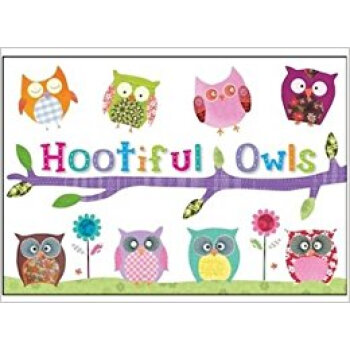

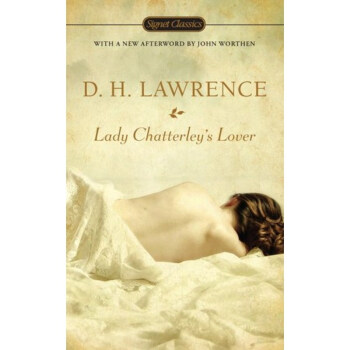



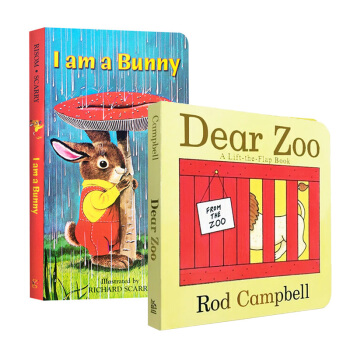
![My Weird School #2: Mr. Klutz Is Nuts! 瘋狂學校#2:剋拉茲先生瘋瞭! 英文原版 [平裝] [6歲及以上] pdf epub mobi 電子書 下載](https://pic.tinynews.org/19003864/550be533Ne52e7c21.jpg)
![Bravo, Amelia Bedelia! (I Can Read, Level 2)[乾得漂亮,阿米莉亞·貝迪利亞!] [平裝] [4-8歲] pdf epub mobi 電子書 下載](https://pic.tinynews.org/19005039/550bf277Nc9a950d1.jpg)
![Library Lion 英文原版 [平裝] [4-8 歲] pdf epub mobi 電子書 下載](https://pic.tinynews.org/19290302/rBEhVVJXwnMIAAAAAACvek2S5hMAAEEUwM8pmAAAK-S175.jpg)
![Me Before You 遇見你之前 英文原版 [精裝] pdf epub mobi 電子書 下載](https://pic.tinynews.org/19359220/rBEhVVJbkEUIAAAAAABUpQQVt_cAAEJxwGzKFcAAFS9805.jpg)
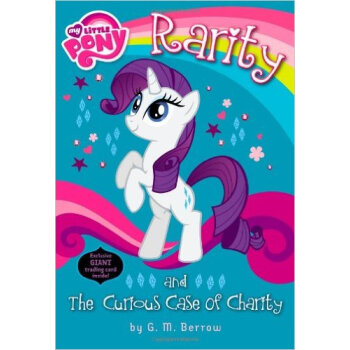

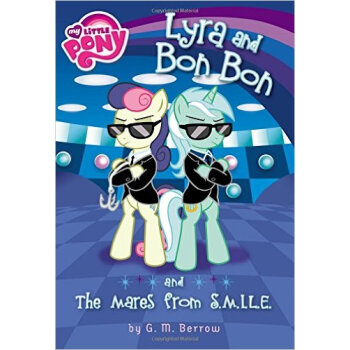
![Flora & Ulysses The Illuminated Adventures [平裝] [08--12] pdf epub mobi 電子書 下載](https://pic.tinynews.org/19677172/5783540cNf59f78fa.jpg)



